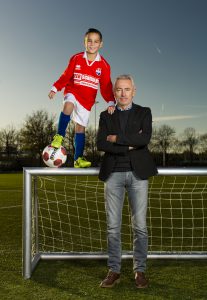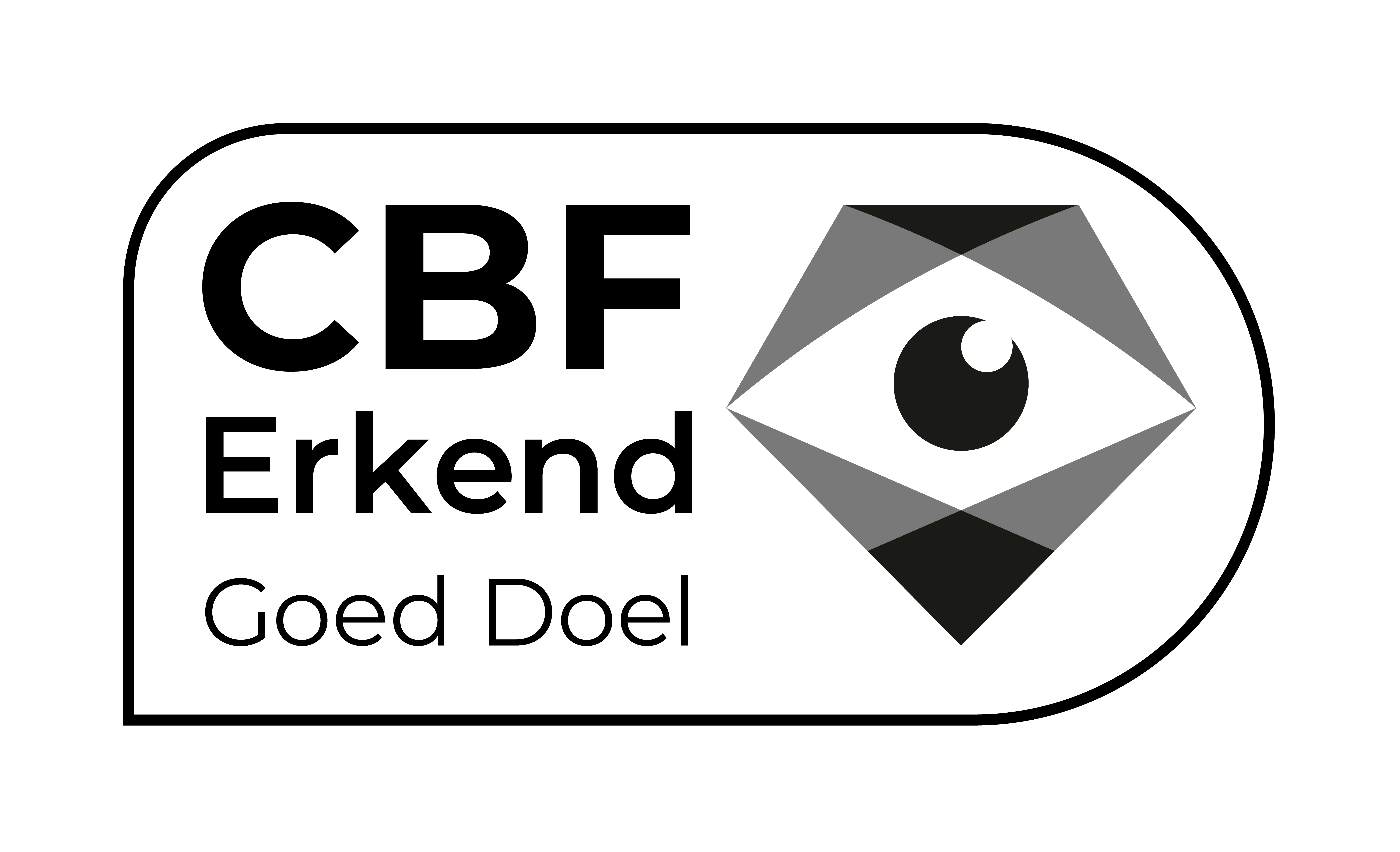To the Youth Fund Sports & Culture Limburg page
Limburg | October 29, 2018
Bert van Marwijk: 'You learn to survive on the street'

Bert van Marwijk, football coach and former national coach of the Dutch national team, is an ambassador for the Limburg Youth Sports Fund.
To survive
If I can believe my mother, I was already playing soccer when I could crawl. At first, mainly with balloons, later with a ball. I played real soccer on the street with friends. I lived in a working-class neighborhood in Deventer, and I'd walk straight out of our garden, through some alleyways, into a playground with a full-size soccer field. It was such a sociable place. Old and young mixed together. That's where I grew up.
On the street, you learn to survive, you have to make your own rules, you learn to make decisions. If there were nine of us on the street, we'd play four against four, and one person simply couldn't participate. Or we'd say, "We're going to play four against the five of you." Everyone knew what time it was. Sometimes that was quite harsh. That street was very defining for me; it shaped me. Nowadays, it's dangerous to play on the street; generations of children are growing up without learning to make their own decisions. So, you have to simulate that kind of situation at clubs and associations. And for that, you need good coaches."
Over the bridge
Most of Deventer lies on one side of the IJssel River. One neighborhood is on the other, and that's where I lived. When I was about seven, I wanted to play for Go Ahead, just across the bridge. But I was too young; you couldn't sign up until you were eight. They knew that story at the playground, and before I knew it, the treasurer of a local amateur club was standing right in front of me. He said I'd be very welcome there, so we'd just pretend I was eight.
After playing there for two years, I got on my bike and cycled across the bridge to the Go Ahead open day. If you caught the eye during that day, you could earn a spot in the squad. There I was, all alone. I felt like everyone knew each other. Yet, I was selected. After that, I went through all the teams and made my professional debut at seventeen. I appeared on television three times that year, in the matches against Ajax, Feyenoord, and PSV. It was so hard to see, I had to point my finger at the black-and-white TV screen. 'Look, Dad, that's me.'
Football boots costing 31 guilders
"I think my mother came to see me once. I fell. She turned around and never came back. She hated seeing me in pain. My father was proud; Go Ahead was his club too. He always followed me, wherever I went.
My father was my rock. I was confident enough to tell him anything. The first time he came to visit, I told him I didn't want him to yell or interfere. I was seven or eight years old. And he never did.
I still remember seeing a pair of football boots in the window of Sporthuis De Witte in Deventer. The price tag said 31 guilders, and I really wanted them… But I only got one guilder in pocket money a week. So I had to save for 31 weeks. When the last three or four weeks arrived, my father said, 'You've saved for so long, I'll give you a few extra guilders.' Those boots sat at the foot of my bed for two weeks before I finally put them on.
Big mouth
I was actually a shy boy. I blushed easily and was often embarrassed. Except when I had a ball at my feet or was playing outside. Then I was cheeky. I'd be the first to get into mischief. But when it was my turn in class, I wasn't so loud anymore.
Football made me grow up faster. For example, when I was twelve or thirteen, we went to London on an exchange with an English club. After a journey by boat, train, and bus, we finally arrived at the town hall. There, we were divided among host families. I saw everyone around me going to host families in pairs, and I was left alone. They said, 'You can already get by in English pretty well, so we've agreed you'll go alone.' I didn't like that at all. But it was a good lesson.
Crying and celebrating
Thirty-five years ago, I coached youth teams. There were sometimes a few boys among them who were completely on their own. Their parents were never on the sidelines. They were often reserved boys who would sit in the corner. I always tried to make it clear to them that they could come to me.
Those boys were in a club. But I also know there are children on the sidelines, children who can't participate, who can only watch their friends. And who are ashamed to say they need help. That's awful. When I woke up on Saturday morning as a child, I immediately put on my football kit and cleats. Then I quickly ate a few sandwiches and was off. Then I went to my playground, to my club.
Parents aren't so quick to approach the Youth Sports & Culture Fund, perhaps out of shame. So it has to come from teachers, social workers, and community sports coaches. They're ideally placed to identify children who need help. And honestly, it's so simple, so direct. You can easily help a child. Sports are so important. You build resilience, you perform better at school, you develop yourself, you learn to lose, to share, to cry, to laugh, to celebrate. You miss so much if you stay stuck behind that computer.
Read more stories Read more stories from the Limburg Youth Fund for Sports & Culture




